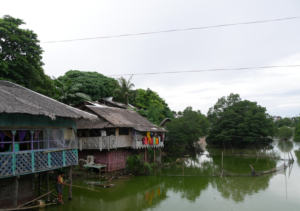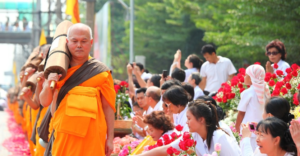The Asian continent has been a prime choice for many as a destination for leisure. As it turns out, it’s a prime choice for a lot of individuals looking for work too. Around 75 million international migrants chose Asia as the place to seek employment and even eventual settlement, according to the 2018 World Immigration Report. If you happen to be one of them, it’s important that you do due diligence before committing. So when it comes to relocating to Asia and working there, what should you keep an eye out for?
Visa requirements and duration
The first thing that you should check out is the visa requirements for your destination in Asia. Every country has its own rules and laws when it comes to migrant workers. For example, Singapore has an Employment Pass system that’s valid for about 2 years and requires a minimum salary of SG$3,600. Japan’s work visa system will be undergoing some changes in the 2nd quarter of 2019 so it’s good to read up about that if you’re considering working there.
Financial stability

Source of job listings


For more on the local job boards, check out the Jobboard Finder job board profiles.
Climate and environmental issues
Each country has its share of ecological and environmental issues. For example, the totality of Asia is set to experience 50% more rain due to climate change, according to the findings of the Asian Development Bank. If you’re thinking of relocating to a different country, it makes sense to do sufficient research regarding the kind of issues that exist in a particular country like flooding, storm frequency, drought, and others. That way, you can find out which countries and which provinces are not a good fit. On the Jobboard Finder, some of this information is included in the How to Recruit articles (like the one on the Philippines and the one on Nepal).
Housing options

Social structures
For many westerners, the societal structures of Asian countries can come as a surprise. A good example of this would be the caste system in India. Foreign workers will need to acclimatize to the hierarchies and structures in order to have a smooth transition and work experience. The massive population density can also come as a shock for many foreigners that are used to more space. Cities like Manila, Mumbai, Bangkok, Jakarta, and even Chongqing experience terrible traffic due in part to the number of cars and motorcycles that are used on a daily basis. The highly visible poverty in a lot of developing Asian countries may also be quite shocking for a Westerner so it’s important to prepare for it mentally. It will help you narrow down which countries could potentially become your new home.
Cultural and religious norms

It can be intimidating to sort through paperwork when you’re planning on making a big move. Relocating to an Asian country is a serious decision but can be made easier with proper preparation and careful research. Having a clear idea of which country and which culture best suits you go a long way to providing a productive working and living experience that can last for years to come.
We would like to thank Cassandra Steele for this contribution. Cassandra is an experienced freelance writer and editor with a passion for travel. Having lived in several places around the world she adores exploring new cultures and experiencing new ways of life.
Author: Ali Neill
As the job board tester and blog editor for the Jobboard Finder, Ali works on job boards from all around the world and keeps a close eye on the recruitment trends thanks to a number of sources, including the website’s social media pages.

























« How Job Boards Can Adapt to the Gig Economy
Where and When to Use LinkedIn »

